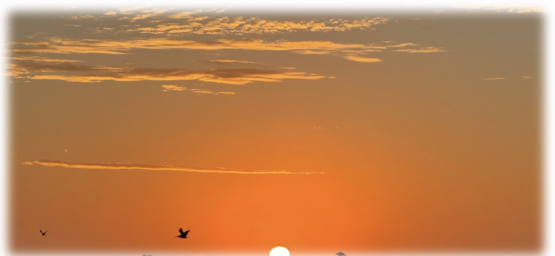
WEDNESDAY, NOVEMBER 6TH 2024
A BRILLIANCE YET UNKNOWN
The Rev. Jenifer M. Chatfield
Today’s lectionary readings were for the Feast Day of William Temple. Who is William Temple you might wonder and why does he get a day on the lectionary calendar? William Temple was the Archbishop of Canterbury during the Second World War. According to “Lessor Feasts and Fasts,” Temple was not “subject to poverty” but he developed a “passion for social justice which shaped his words and actions.”[1] His actions were informed by his belief in the power of the Incarnation. He wrote that the Incarnation, Jesus Christ taking flesh and living among us, meant that “the personality of every [person] is sacred.” He “understood the Incarnation as giving worth and meaning not only to individuals but to all of life.”
The Gospel reading for this day honoring William Temple is from the Gospel of John:
“There was a man sent from God, whose name was John. 7He came as a witness to testify to the light, so that all might believe through him. He himself was not the light, but he came to testify to the light. The true light, which enlightens everyone, was coming into the world. He was in the world, and the world came into being through him; yet the world did not know him. He came to what was his own,* and his own people did not accept him. But to all who received him, who believed in his name, he gave power to become children of God, who were born, not of blood or of the will of the flesh or of the will of man, but of God.
Jesus came into the world as “The Light.” Why is Jesus described as “The Light” and why is this important? Because quite simply, the world is full of darkness. For some reason that maybe no one can truly know, the world is often more comfortable in darkness. This comfortability is often dictated by fear. But, Jesus came as The Light so that we could see beyond our own fears, and so that we could experience love that is bigger and more expansive than mere affection; a love that is not transactional or greedy for power.
One of the greatest works of theology is Teresa of Avila’s The Interior Castle. Teresa was a Carmelite nun in 16th Century Spain (now a Saint and Doctor of the Church). She was a woman who had no voice in a world that didn’t give women a voice. She wrote during the time of the Spanish Inquisition about prayer as a way to a personal experience of being in union with God. She emphasized having an interior spiritual life not solely dependent on the doctrines of the church. She somehow managed to skirt the darkness that was the Spanish Inquisition while others were charged with heresy. Careful not to step too far out of bounds of church authority her writings, while under suspicion, expressed the acknowledgment that God was love and that spending time with Jesus in prayer helped one to transform. However this transformation was useless unless we took this transformative inner spirituality out into the world.
To paraphrase Teresa’s writing: Imagine a castle—the castle is your soul. At the center of this castle is a bright shining diamond—brilliant and luminous. This is God. There are seven rooms that we must go through to get to this diamond. We have to take that step to enter into the castle, however most of us remain outside the castle walls. When we look in the castle we don’t even see the brilliant light—it is dimmed, covered in a dark substance, enveloped in a black curtain. We live outside the castle walls with the snakes, and the mud that keep us stuck in the comfort that darkness feignedly disguises itself as stability. We live with the creepy creatures outside the walls not fully knowing about the bright diamond in the middle or worse, we don’t have the courage to seek it. We falsely think that we are safe in the comfort and false stability that darkness sometimes affords.
It takes courage to walk across the threshold and enter into the castle. It takes bravery—the bravery that faith should give us. But even when we get a glimpse of the light we often are too scared to venture forward into the next room. We don’t often like or feel comfortable with what we don’t know. As a result, we don’t venture forward because we are still afraid of what is deep down at the center of our souls. We are afraid of God. Why? Because God always asks more from us.
Jesus came as the light so that we would not be afraid to venture toward God. Jesus gives us the courage we need to enter into the castle. Jesus came as The Light. Light dispels fear and promotes love. Light reveals lies and deceit and awakens us to the truth. Light creates rainbows of wonder. Light beckons us to be courageous and to be better human beings; always progressing into and toward our birthright as creatures made in the image of God.
As Episcopalians, we need to keep our focus on Jesus who will take our hand and guide us across the threshold, despite our fear. He will lead us room by room through the unknown passageways toward the luminous diamond that is at the center of all our souls. The world needs us to keep drawing inspiration from The Light, so we can move closer and closer toward the brilliance as we seek to evolve as human beings.
Have faith and never forget that our full brilliance is yet unknown. It is always our choice to enter into the castle so that we can begin the work that our Incarnational spirituality asks of us: To treat everyone as sacred and to progress out of the darkness and into the light.
[1] The Episcopal Church, Lesser Feasts and Fasts (New York: Church Publishing, 2022) 495.


